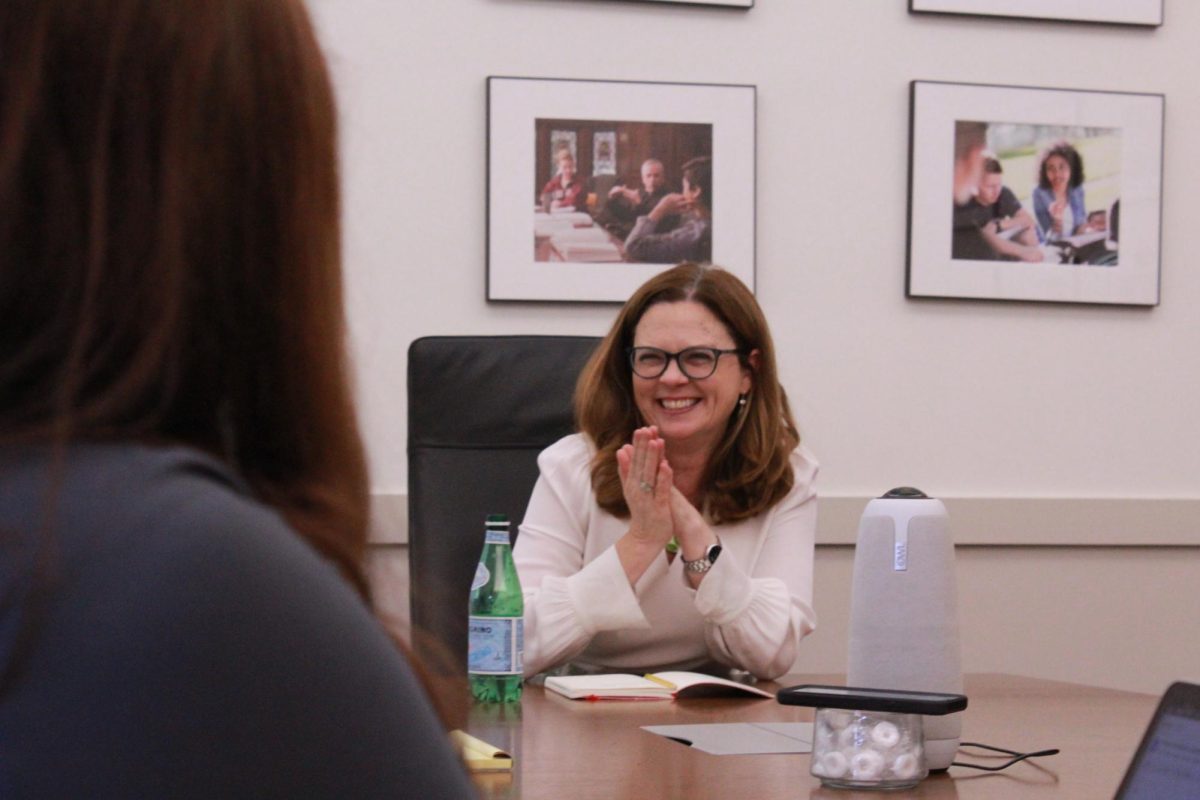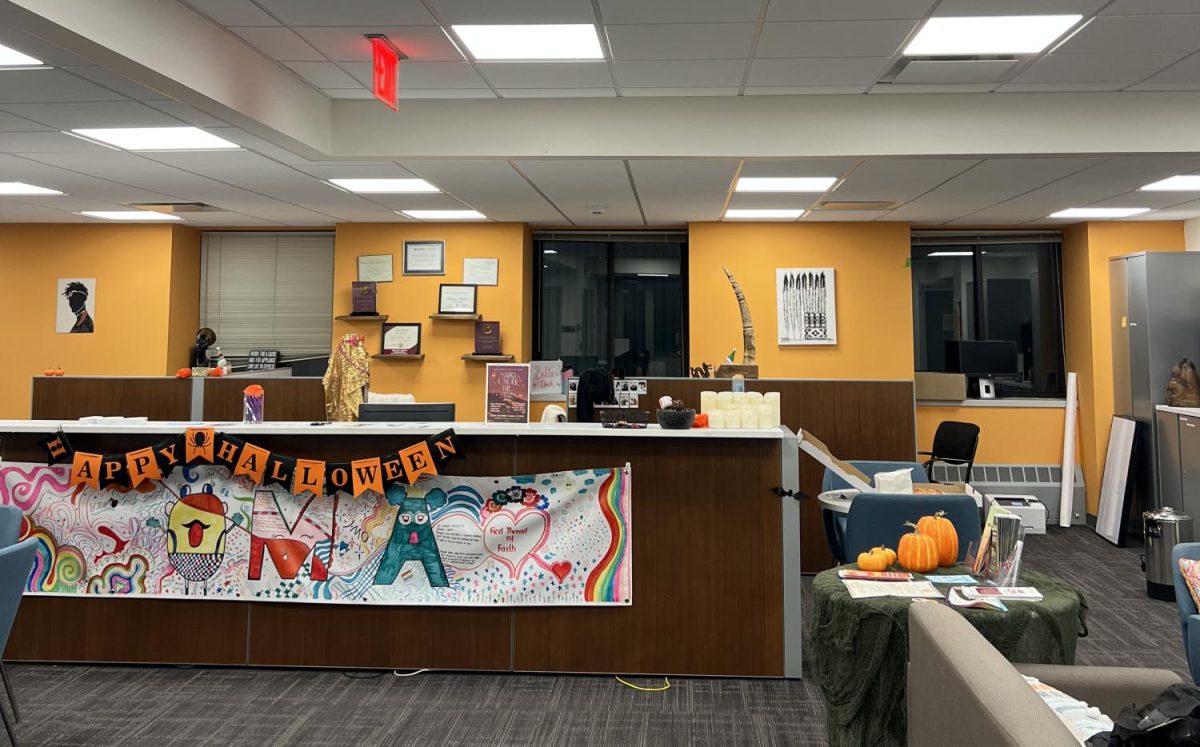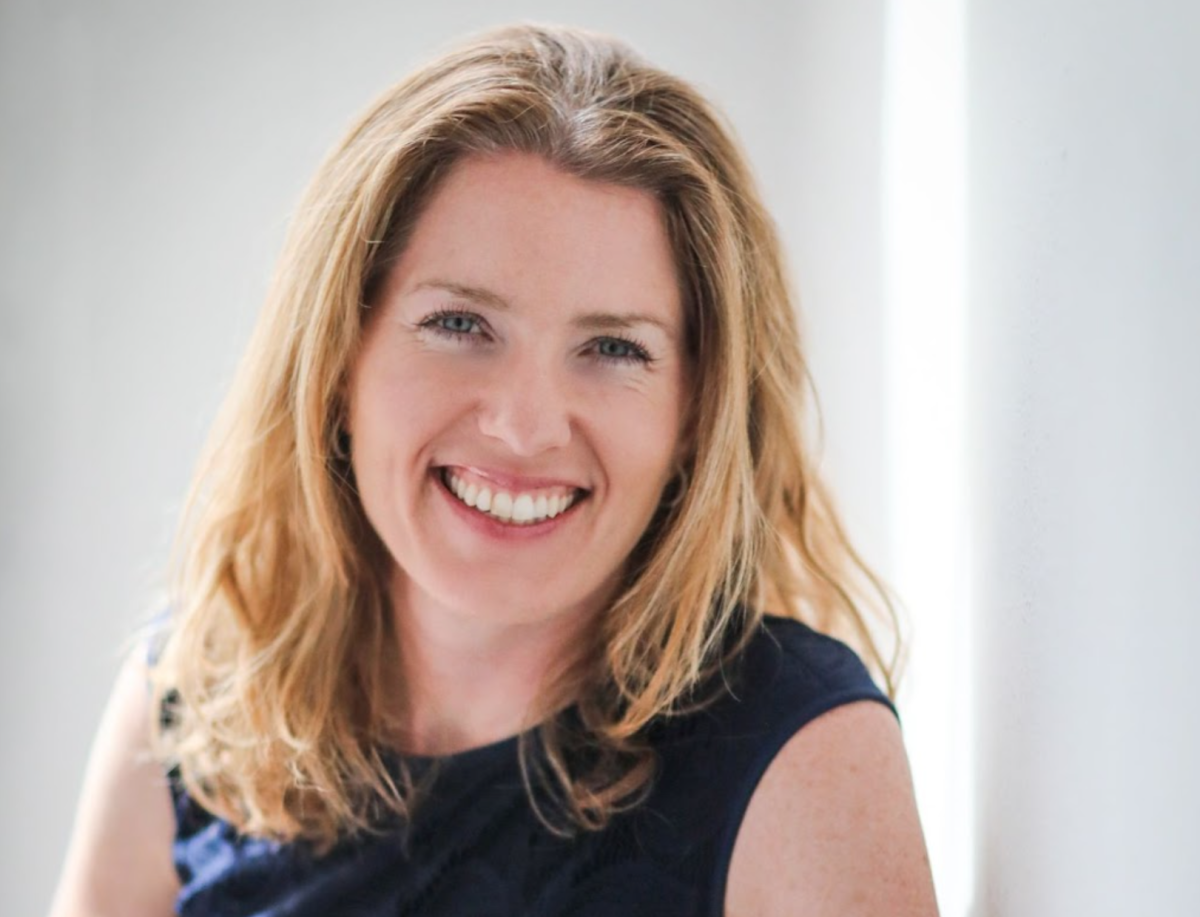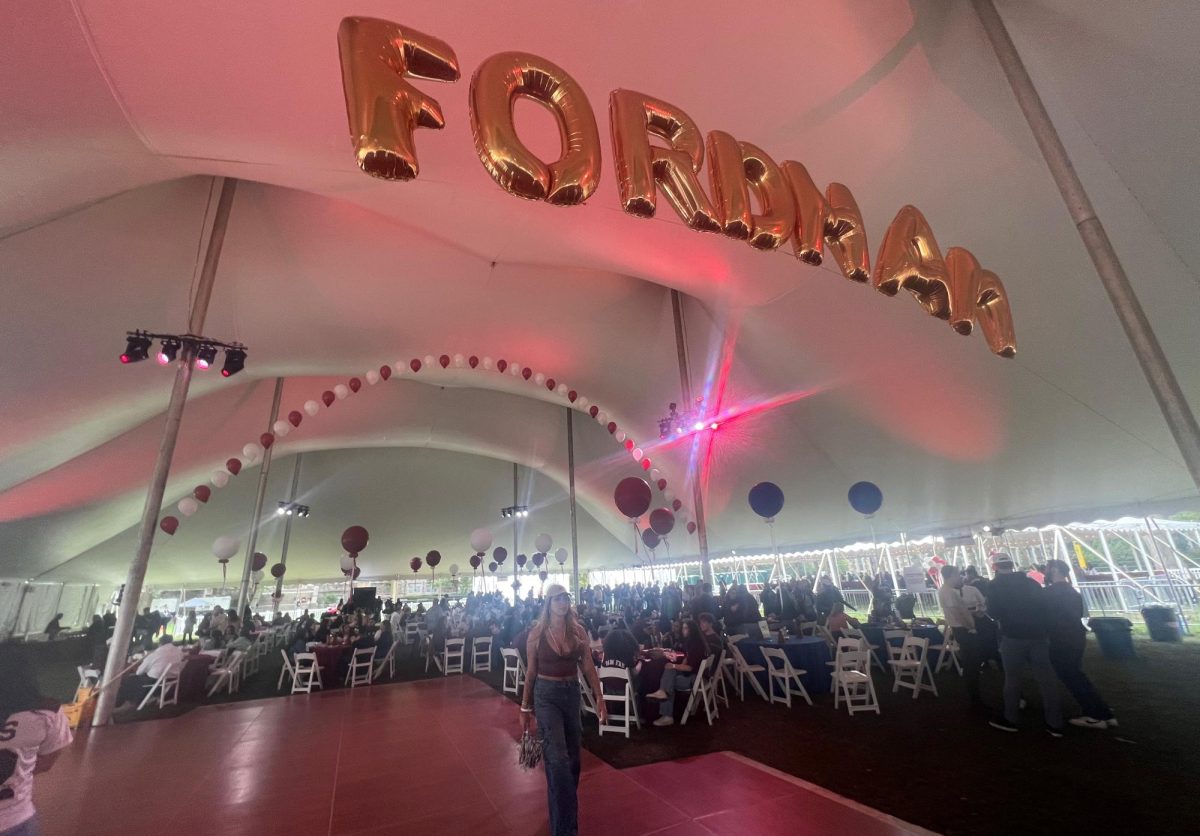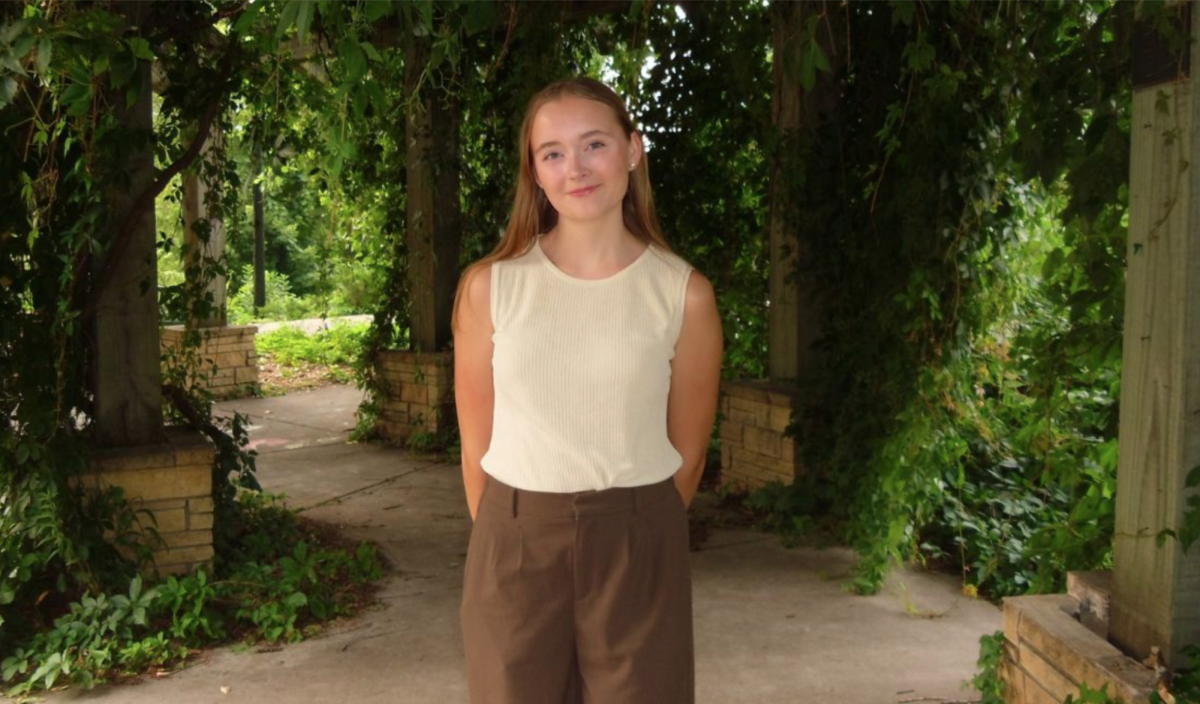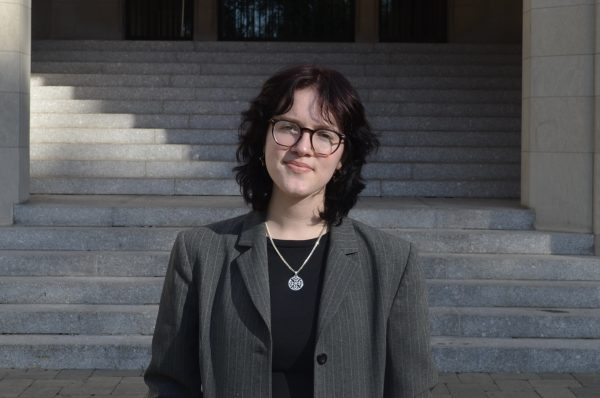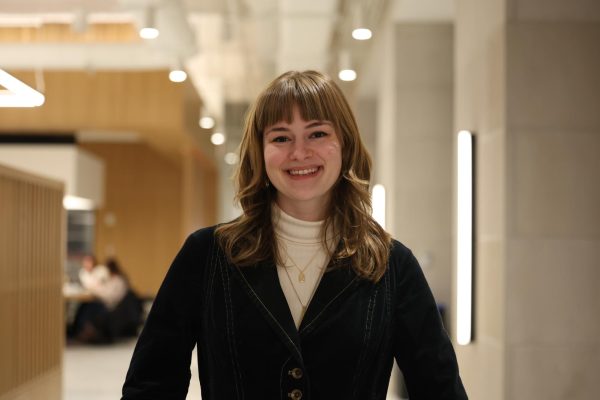President Tania Tetlow met with members of Fordham University’s student papers, The Fordham Ram and the Fordham Observer, earlier this week. The meeting covered various topics, including the upcoming election year, the protests last May and Fordham’s updated marketing strategy.
When asked about her proudest accomplishment thus far, Tetlow mentioned the updated McShane Marketplace Dining Hall.
“I know how much food matters to students, for health and community, and the ways we express ourselves culturally and religiously,” she said. “The project came in early and on budget, which is very exciting.”
She also mentioned that the administration is looking to update the Lincoln Center dining options sometime in the future.
Regarding the encampment and protest last May, Tetlow shared that the university has been working with Student Affairs and the Faculty Senate to review the demonstration policy.
“It’s not that any policy can map out every possible time, place and manner of a demonstration and give a chart in advance. The policy remains a conversation that student affairs has with any individual or group that wants to have a demonstration,” said Tetlow. “We’re pretty sure for the last 30 years, 100% of requests for demonstration have been granted.”
She said that the decision to arrest was not easy, and she spent much of the day discussing with members of the administration, faculty and the students in the encampment. She mentioned that she received several emails from faculty members urging her to avoid arresting the students.
“I definitely spent a lot of time putting myself in the shoes of the protesters and remembering that I’ve had the same instincts, thinking about my pride in them for caring enough to do something about injustice in the world,” said Tetlow. “[But] to me, an encampment in a classroom building on the eve of finals just doesn’t work.” She also said that while she has enormous respect for the protestors, she didn’t think disrupting others’ education was necessary for the cause.
Tetlow said that the students in the encampment were provided a detailed explanation of what was happening and were given multiple opportunities to leave. Protesting students were given the opportunity for a bathroom break prior to being arrested and charged with misdemeanor trespassing.
“They understood the decision they were making and went peacefully and were booked with what the police described to us as akin to a traffic ticket.”
When asked, Tetlow said that she and members of her team have spoken to student activists about engaging with the Board on the endowment.
Additionally, the university began working on launching the FitzSimons Presidential Initiative on Civics and Civility over the summer to help the university community have difficult conversations in a civil manner.
“There’s a real urge from students and faculty to do deep learning on how to have difficult conversations. To take a controversial issue and then practice talking about it in a way that is respectful,” she said. Tetlow emphasized the role that “Jesuit discernment” plays in these conversations. “We’ve been at this for 500 years, and we’re part of a heritage that is profoundly good at this.”
Anthony A. Berry, who has been spearheading the FitzSimons program, met with students and staff throughout the summer and into the fall semester to learn what the community wants and needs.
After the U.S. Supreme Court overturned affirmative action two years ago, colleges have been working to continue to increase student diversity despite the ruling and the obstacles it created.
Fordham’s Class of 2028 has become the university’s most diverse, with 50% of students identifying as people of color. Tetlow attributes that to Fordham’s commitment to “fishing in diverse ponds.” The president specifically referenced feeder schools like Bronx High School of Science and Brooklyn Technical High School.
Tetlow said this strategy to increase diversity is catching on at other universities as well. “We have more competition in those ponds than we used to, but we have the credibility that the newcomers do not have,” she said.
Tetlow is pleased with the increase in racial diversity but hopes it continues to grow.
When asked about the school’s still small but increasing African American student population, Tetlow said, “I am very eager to improve those numbers. I hope we can just keep building on that success.” The percentage of African American students at Fordham rose 26% from the Class of 2027 to the Class of 2028, which is 6.6% Black.
In November, many members of the Fordham community will be casting their vote in the 2024 presidential election. The university will encourage students to register to vote and assist them with absentee ballots.
“I am hoping we can hit as close to 100% voter participation as possible and that’s not about how you vote but because the only way to participate in your democracy is to vote in it,” she said. “I remember as a college student being so excited about a presidential election and being able to matter in that way.”
Recently, Fordham has also been changing its marketing strategies after hiring Justin Bell from Ohio State University in August 2023 as the university’s first vice president for marketing and communications. Fordham has been “kicking it up a notch” strategically.
The university started reconsidering its “brand” and sending out surveys to students, faculty, alumni and prospective students to understand what they think of when they think of Fordham.
“We have to stand out, and it’s not easy to stand out. It’s not by being everything to everybody; it’s by being ourselves and seeing who works best here,” said Tetlow.
The Fordham College of Arts and Sciences is also getting a refresh come spring with the hiring of one central dean to replace the previous dean of Fordham College at Lincoln Center and dean of Fordham College at Rose Hill.
“We did it because Arts and Sciences lacked the kind of unified leadership that Gabelli [School of Business] has had for years. We were split in leadership with four deans who were all in equal power with each other, none of who were a tiebreaker,” said Tetlow. “It meant we didn’t have the innovative, forward-looking strategy that we need in Arts and Sciences because no one person had the power to do that.”
Once the new dean is hired, the Arts and Sciences core curriculum will be restructured. The hiring committee looks at people both outside of the university and within it.
“What I believe is you hire the best person in the country, and that is often someone already at Fordham,” said Tetlow. She referenced the two deans she has hired during her tenure, both of whom came from within Fordham.
She also discussed how the university is working to keep costs down and return on investment up, saying, “What worries me the most is affordability.”
“When the whole cost of education is put on American families themselves, it becomes really brutal to afford excellence, and you deserve excellence,” she said. “And we’re not known in higher ed for really being nimble, but we’re going to have to become nimble.”
Tetlow also discussed her role as president, her favorite aspects of her job and her vision of Fordham.
“I know when I was a student, I had no idea what a university president’s job was, and you shouldn’t have to,” she said. Tetlow also described Fordham as “unusually warm and kind” compared to the outside world. “The students are what make me happy, getting to sit down with them and hearing how excited they are about what they’re learning and their futures and how much hope they bring all of us.”





































































































































































































